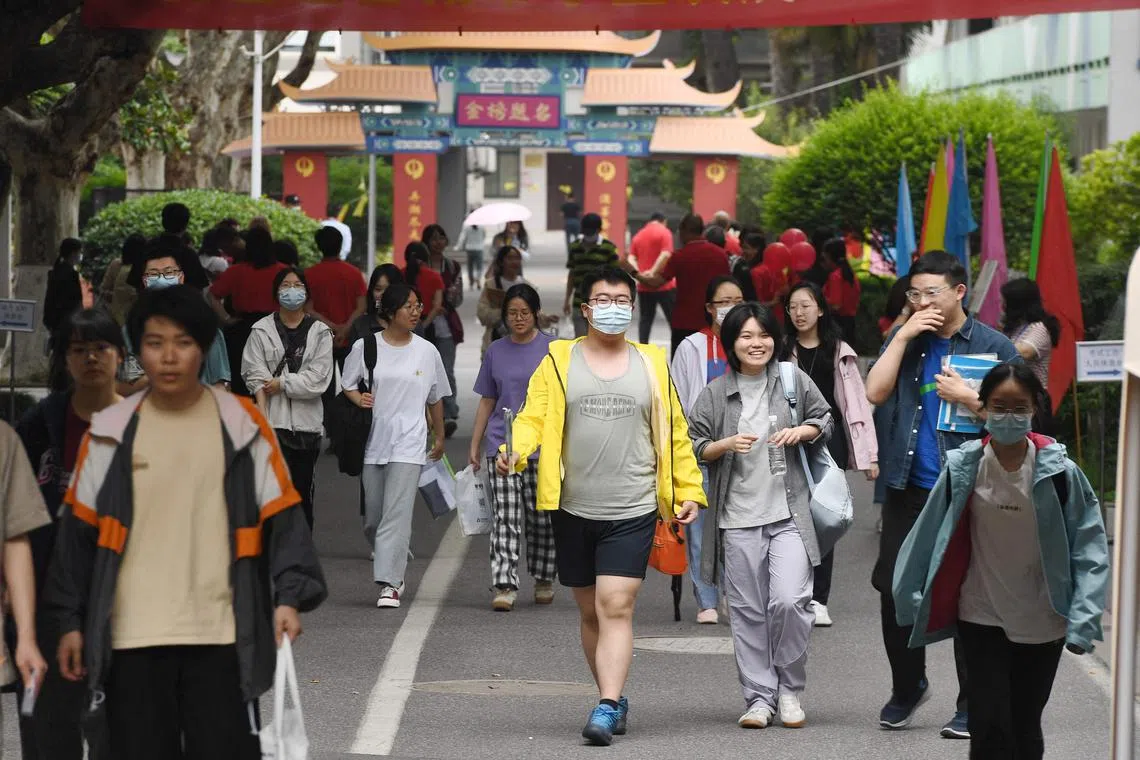High school graduates in China warned of fake universities
Sign up now: Get insights on Asia's fast-moving developments

The fake universities usually claim that as long as the students pay enough money, they can attend no matter their gaokao score.
PHOTO: AFP
Follow topic:
BEIJING - The education authorities and experts in China have warned high school graduates not to fall for tricks by fake universities as they weigh their college options.
A list of hundreds of fake universities has been trending online, aimed at reminding students who have not performed well in China’s national college entrance exam, or gaokao,
The universities usually have names similar to legitimate ones.
For example, one of the fake universities is named China University of Posts and Telecommunications, similar to Beijing University of Posts and Telecommunications and Nanjing University of Posts and Telecommunications, both well-known universities in China.
The universities usually claim that as long as the students pay enough money, they can attend, no matter their gaokao score. Some said they have an “enrolment quota from insiders”.
Some of the institutions may cooperate with standard universities to open “training institutions” but then tell parents and students that they are part of the university.
China’s Ministry of Education has reminded students and parents to check the university’s authenticity after they receive admission letters.
Moreover, the ministry said standard enrolment does not involve any monetary transaction and if an institution asks for money for an enrolment quota, they are not to be believed.
But some parents and students with low gaokao scores have fallen for such tricks.
In one case, a man in Jiangsu province, who was identified only as Qiang, told a friend that he could help the man’s son who did not perform well in the gaokao, convincing the man that he has ways to help his son attend college if he paid enough money.
Qiang told the man that his son had been admitted to the university and gave him a fake admission letter, but said that he could not enter the campus due to the Covid-19 pandemic.
Similarly, Qiang tricked another man into paying him money to get his son into university.
After a year, when the pandemic was no longer a concern, the two men found they had been tricked.
A court in Changzhou, Jiangsu, found that the two men had paid Qiang more than 4.7 million yuan (S$869,000) in total. The court sentenced Qiang to 12 years and six months in prison plus a fine of 310,000 yuan.
One woman told Beijing Daily that her little brother almost fell for such a trick. Her brother took the gaokao last year but his score qualified him to attend only a vocational college. As he waited to get an admission letter, he also got one from a university in Huanggang, Hubei province.
But he had not applied to the university and only added the WeChat account of a person who claimed to be the university’s admission official and sent him his address and ID number. CHINA DAILY/ASIA NEWS NETWORK

